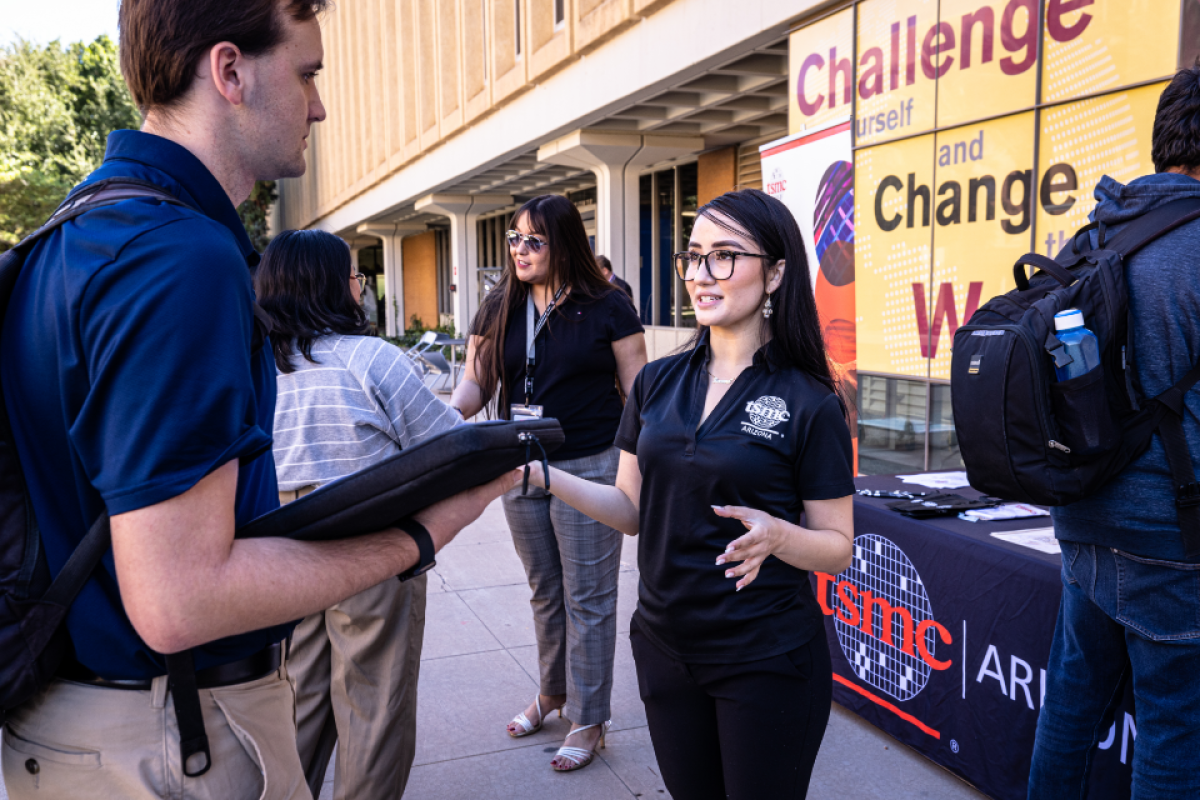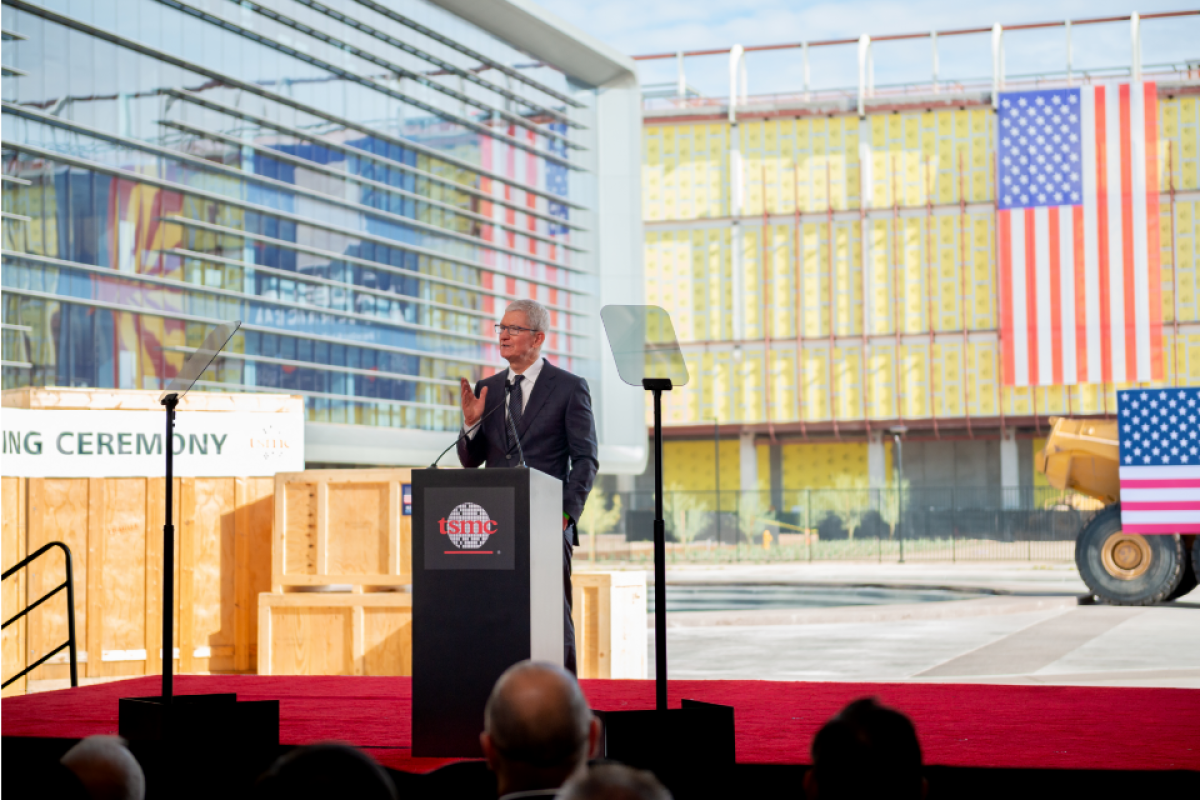Editor's note: This story originally appeared in the spring 2023 issue of ASU Thrive magazine.
Taiwan Semiconductor Manufacturing Company announced that in addition to its first Arizona fabrication facility, which drivers can see in north Phoenix off the I-17, it has also started the construction of a second fab.
The first is scheduled to begin production in 2024, the second in 2026. The overall investment for the two fabs will be approximately $40 billion, representing the largest foreign direct investment in Arizona history and one of the largest in the history of the U.S.
“ASU will work to provide the talent to support the workforce that TSMC needs and research that is of value,” says Michael M. Crow, president of ASU, which is an education partner of TSMC.
As part of the expansion, TSMC recruiter Alexandra Moulinet and early talent manager Roxanna Vega met with students outside the Engineering Center building G, as they and another representative from TSMC visited ASU. The company held information sessions about employment opportunities now and in the future. TSMC is the world’s largest contract chipmaker and is constructing two major chip fabrication plants in the northwest Valley.
To learn more about engineering careers visit career.engineering.asu.edu.
Learn more about ASU’s work in semiconductors and with local partners at neweconomy.asu.edu.
Top photo: TSMC is investing $40 billion in two North Phoenix fabs to manufacture high-tech chips. The facilities will help bring more semiconductor industry manufacturing back to the U.S., helping U.S. companies like Apple and AMD secure critical components domestically.
More Science and technology

Google grant creates AI research paths for underserved students
Top tech companies like Google say they are eager to encourage women and members of historically underrepresented groups to consider careers in computer science research.The dawn of the era of…

Cracking the code of online computer science clubs
Experts believe that involvement in college clubs and organizations increases student retention and helps learners build valuable social relationships. There are tons of such clubs on ASU's campuses…
Consortium for Science, Policy & Outcomes celebrates 25 years
For Arizona State University's Consortium for Science, Policy & Outcomes (CSPO), recognizing the past is just as important as designing the future. The consortium marked 25 years in Washington, D…



